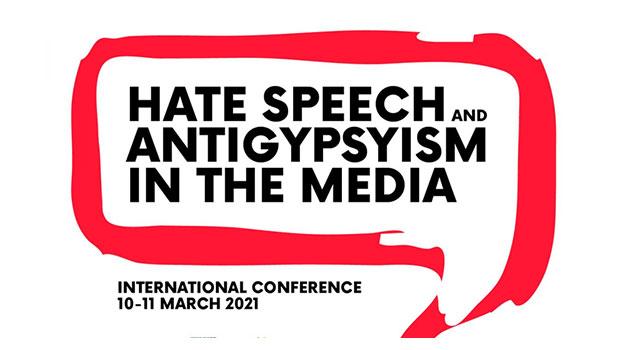Romani Experts Discussed Hate Speech and Antigypsyism in the Media
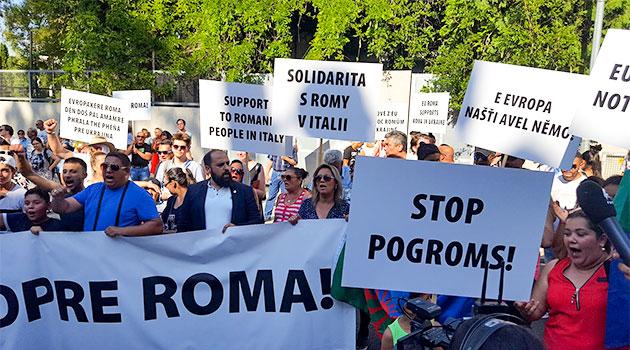
The European Roma Institute for Arts and Culture (ERIAC) held an international conference titled “Hate Speech and Antigypsysm in the Media” from 10-11 March 2021 in cooperation with the Council of Europe Roma and Travellers Team and the Central Council of German Sinti and Roma.
“We are living in times in which nationalism, antigypsysm and anti-Semitism are on the rise again throughout Europe; people are being attacked and even murdered because of their origin, skin color or religion,” said Romani Rose, a Romani activist from Heildelberg, Germany who was among the first to address the conference.
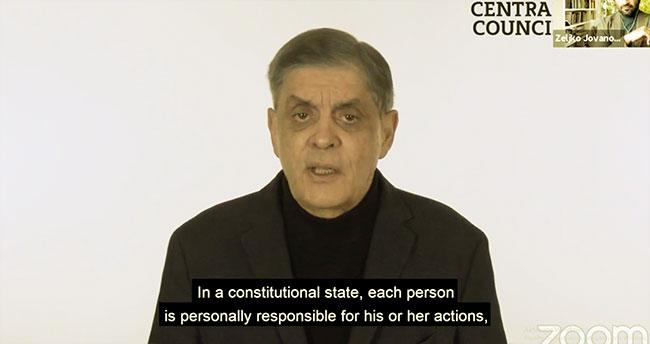
Rose, who lost 13 relatives in the Holocaust, believes that journalists, photographers and filmmakers bear a huge responsibility because they shape the image of the Roma, the largest minority in Europe. Often that image is influenced by clichés handed down over centuries that remain deeply rooted in the minds of media consumers today.
Social media is the new challenge
Participants agreed that social media is the most acute challenge minority groups are facing nowadays. Hate speech on social media is a new, alarming phenomenon that is used to demonize minority groups. “In social media we know that hate speech spreads much faster,” said Zeljko Jovanovic, director of the Open Society Roma Initiatives Office.
Zeljko Jovanovic: In social media we know that hate speech spreads much faster
Isabela Michalache, Senior Advocacy Officer at the European Roma Grassroots Organisations Network (ERGO), says the results of the Roma Civil Monitoring Project that was implemented by 90 NGOs in 27 EU member states show the rise of hate speech in social media and media. “It’s become casual and normal, part of normal life,” she said.
Despite the fact that hate speech is considered a crime according to the Framework Decision on combating certain forms of expressions of racism and xenophobia, racists use it openly on social media against Roma. “Burn them all, alive. Give me back the fucking Hitler ovens. Gypsies, bastards. Expel them from the country,” is their common rhetoric, according to Roberto Bordone, a coordinator at the National Anti-Racial Discrimination Office (UNAR) in Italy.
Connection between online and offline violence
Vivien Brassói, legal manager for the European Roma Rights Centre (ERRC), pointed out that there is a direct connection between inflammatory speech online and violent acts against minority groups. She recalled incidents in France and Ukraine where far-right groups expressed hatred against Roma on social media that led to violence and killing.
Speakers agreed that it is necessary, therefore, to detect hate speech shared on social media, ban it and penalize it. Politicians as well as civil society and also those who finance media and social media should play an important role in combating hate speech against minorities. “We cannot rely on ethics, existing laws or the media´s own rules, regulation and a clear legal framework are necessary,” confirmed Hallvard Gorseth from the Council of Europe.
To prevent and counter the spread of illegal hate speech online, in 2016 the European Commission agreed on a Code of conduct on countering illegal hate speech online with major online media outlets, explained its initiator, Tommaso Chiamparino.
“It is very important for civil society organizations to monitor what’s going in the digital world. They should hire people to monitor it,” said Ismael Cortés, a Romani MP in the Spanish Parliament. “I proposed a law that social media platforms must deal with hateful content within 48 hours if detected by some organizations; otherwise, they will pay a very high fine.”
There are also encouraging stories to be told about such law enforcement. In 2017 in France, a journalist was sentenced to six months in prison and fined EUR 20 000 for inciting discrimination against Roma in his article. The publisher was also fined and got a two-month sentence. “This is what we should call on authorities to do. ROMEA has done a great deal of reporting of hate speech to authorities in the Czech Republic,” said Gwendolyn Albert, a human rights activist based in Prague who thinks it is up to society not to allow hate speech to become the norm.
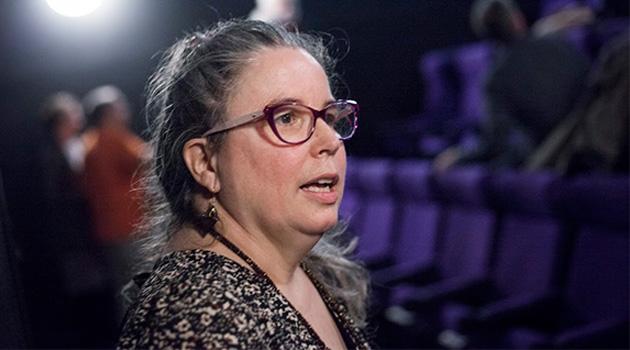
Many participants brought up the need to change the algorithms that govern social media. “We should do the same as the big companies do, we should get the very best people, human rights activists, who can also code, to change the algorithms,” said Gilda Horvath, an artist and journalist from Austria.
More Roma in the media, training of mainstream journalists
Many speakers agreed that greater representation of Roma in the mainstream media, including in leadership positions, would be one important step toward changing deep-rooted biases, but it is not the only step. “Training mainstream journalists, producers and editors on antigypsyism is also necessary. Lack of knowledge can produce hate speech – either consciously or unconsciously,” said Anja Reuss, a political advisor at the Central Council of German Sinti and Roma.
Anja Reuss: “Training mainstream journalists, producers and editors on antigypsyism is also necessary. Lack of knowledge can produce hate speech – either consciously or unconsciously.”
This was confirmed by Marcus End of the Center for Research on Antisemitism, who reported that the mainstream media in Germany perpetuate cliches about Roma, although not always intentionally. By using stereotypical images from disadvantaged communities to illustrate even positive stories, they feed prejudices and imply that “all Roma are the same”.
During the ongoing pandemic, this can have even more of an impact. “German media use misleading images suggesting that Roma settlements could be a problem for the vaccination actions,” said End. In many other countries, mainly in Eastern Europe, people blame Roma for the novel coronavirus pandemic, according to a study of 550 articles portraying Roma and pandemic-related matters, an initiative shared with the conference by Dan Pavel Doghi, Chief of the OSCE-ODIHR’s Contact Point for Roma and Sinti Issues.
Roma journalists are first of all journalists
Journalists from the Romani community told the conference, however, that they are sometimes blamed for being biased when reporting on Roma issues. “You wouldn’t ban journalists from London from reporting on London,” argued Jake Bowers, a British Romani journalist. However, Romani journalists should also give their perspectives on other matters. “We are journalists, not just Romani journalists,” explained Dalibor Tanić, a journalist and activist from Bosnia-Herzegovina.
Lisa Smith, Youth Editor at The Travellers’ Times, a national magazine for Roma and Travellers based in the UK, says that this publication challenges stereotypes by publishing positive stories about role models as a counter-narrative to the predominantly negative portrayal of Roma and Travellers by mainstream media.
According to Gwendolyn Albert, however, when it comes to hate speech, positive stories are not likely to change minds that are made up. “The burden should not be shifted onto the people who are the targets of the hate,” she said of the need to make coverage of Romani people less biased.
Freedom of speech vs. hate speech
One of many other questions raised during the conference was the issue of hate speech vs. freedom of speech. “Freedom of speech is not freedom from responsibility,” Mustafa Jakupov from ERGO Network reminded those attending. “We have to respect freedom of speech, but we also have to find what the limitations of the antidiscrimination provisions are,” agreed Selma Muhic Dizdarevic, board member of the International Network Against Cyber Hate (INACH).
Zjelko Jovanovic sees hate speech against Roma and other minorities as a part of far right groups’ propaganda aiming to replace liberal democracy with autocracy. “They take a principle, a democratic value, and turn it against democracy. Like free speech, for example,” he said.
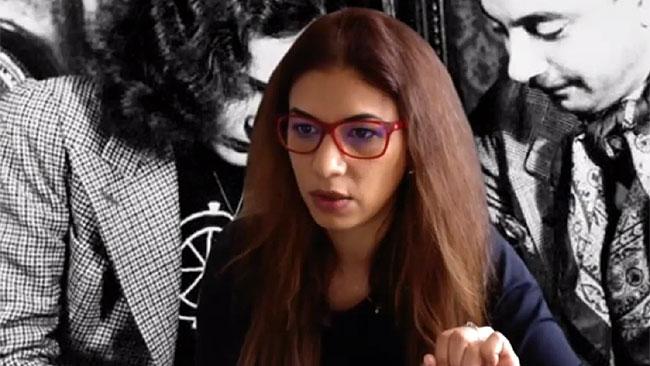
The speakers touched upon many other important topics, such as the relatively new phenomenon of “eco” organizations inciting violence against Roma, or the digital exclusion resulting from the year-long pandemic leaving many Romani children without access to digital technologies and thus without access to a quality education. “The next generation of small Romani heroes who are isolated lack basic access to digital learning,” warned Katalin Barsony, a Romani filmmaker. Mustafa Jakupov also mentioned what he called “involuntary” antigypsyism, spread by people who may not be racists but who do share racist jokes and memes and cause the same harm online as those with more malevolent intentions.
It concerns all of us
The overall message of the conference can be summarized by Gwendolyn Albert: “The key is framing Romani people as fellow citizens, residents, neighbours – and standing up for them. If we don’t stand up to what’s happening to them now, the harm of that will spread to include more and more people. Hatred is infinite if not confronted.”
